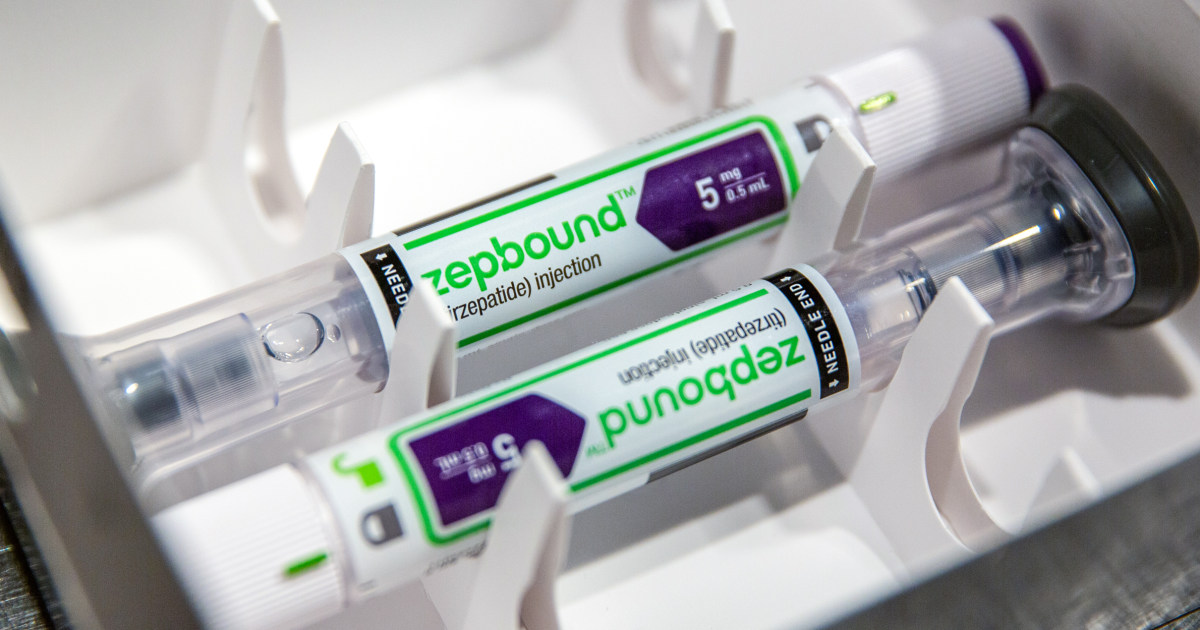
Eli Lilly’s weight loss drug Zepbound was found to reduce obstructive sleep apnea in adults with obesity, the drugmaker said in a release Wednesday.
Obstructive sleep apnea affects about 39 million adults in the U.S., according to the National Council on Aging.
It occurs when a person’s upper airway becomes blocked during sleep, cutting off airflow throughout the night, the National Heart, Lung and Blood Institute says. Obesity, which can narrow the airway, can increase a person’s risk.
Left untreated, sleep apnea can lead to heart arrhythmias, heart failure and death.
Lilly’s results were based on two studies of adults with obesity and moderate to severe obstructive sleep apnea. The findings were announced in a news release and have not been published in a medical journal or reviewed by outside scientists.
The researchers looked at whether Zepbound worked better than a placebo in reducing how many times per hour, on average, a person partly or fully stopped breathing during sleep.
In the first study, participants did not use PAP, or positive airway pressure, machines, which gently blow air into the airway to keep it from collapsing. People in the second study used PAP machines.
The researchers found that after 52 weeks, Zepbound had led to an average reduction of 27.4 events per hour in people who were not on PAP machines, compared to a reduction of 4.8 events per hour for people on the placebo.
In people who did use PAP machines, Zepbound led to an average reduction of 30.4 events per hour, compared to an average reduction of 6 events per hour for the placebo group.
In both trials, people on Zepbound lost, on average, around 20% of their body weight, which Lilly suspects contributed to the reduction in sleep apnea events.
“Tirzepatide has the potential to be the first pharmaceutical treatment for the underlying disease,” Dr. Jeff Emmick, Lilly’s senior vice president for product development, said in the release.
Dr. Susan Spratt, an endocrinologist and the senior medical director of the Population Health Management Office at Duke Health in North Carolina, who was not involved in the studies, applauded the research, saying the findings show that obesity “is not a vanity issue.”
“This is about treating a major health problem that reduces significant morbidity and mortality,” she said.
She said the findings could make insurance companies less reluctant to provide coverage for the weight loss drug.
Last month, Medicare said it would cover Wegovy for certain patients after it was found to reduce heart disease risk.
Lilly said it plans to share additional details of the results of the studies at the American Diabetes Association conference in June.
It plans to submit the results to the Food and Drug Administration sometime mid-year.






